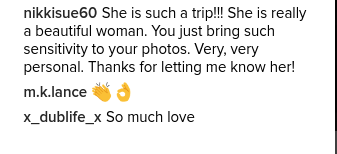Photographer Explains How Documenting Her Mom's Bipolar Disorder on Instagram Changed Everything

By:
Living with a mental illness isn't easy, and a Brooklyn-based photographer gained some insight into this particular struggle after creating a photo series of her mother, a longtime sufferer of bipolar disorder and substance abuse.
Photographer Melissa Spitz gained a lot of attention for her photo series "You Have Nothing to Worry About," in which she followed her unidentified mother's daily life with mental health issues.
Spitz, whose Instagram page has more than 9,000 followers, told Broadly that embarking on this project completely changed the way she viewed her mother's mental health issues and the mental health community at large.
"I think at first I thought mental illness was wishy-washy," Spitz told Broadly. "Now, though, I do think she's very, very, very sick, and I think of mental health completely differently. I think there needs to be a lot more support and funding for family members and children, the circle it surrounds."
Many of the images capture Spitz's mom in vulnerable moments:
Some people have called Spitz's work exploitative, but she told Broadly that her mother really appreciates being part of the project.
Others have thanked Spitz for spreading awareness of mental health issues in photographic form:
 Instagram - instagram.com
Instagram - instagram.com
 Instagram - instagram.com
Instagram - instagram.com
 Instagram - instagram.com
Instagram - instagram.com
Similar projects have launched to help loved ones who are suffering from mental illness.
Photographer Maureen Drennan created a photo series to improve her marriage, she told The Huffington Post.
Drennan's husband, Paul, suffers from depression, so she captured day-to-day moments in their lives in hopes of connecting with him on a deeper level.
"The intimacy of making the photographs together during a challenging time was restorative," Drennan said. "Where words failed us, the pictures filled in the blanks."
"Paul was going through depression, and I didn't want to isolate him further by picking up the camera and photographing him," Drennan added. "But once I began taking pictures of him, it felt comfortable, and it became part of what we did together."
ATTN: has reached out to Spitz for further comment on her photo series and will update this piece when she responds. Check out Spitz's full interview with Broadly here.
